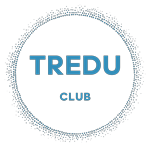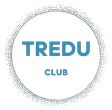Can’t You SEA? – Together for marine protection 🌊
About the project
“Can’t You SEA?” is an Erasmus+ youth project that brings together young people from six countries to address the challenges of marine pollution, climate change and sustainable protection measures.
Project overview
Project name: Can’t You SEA?
📅 Duration: March 1, 2025 – February 28, 2026 (12 months)
📍 Youth exchange location: Hylatio Tourist Village, Pissouri, Cyprus🔗 www.hylatio.com.cy
📆 Date of the youth exchange: November 12 – 21, 2025 (including travel days)
👥 Participants: 36 young people + 12 group leaders + 2 facilitators
💰 Costs: Travel, accommodation and meals are funded by the Erasmus+ program
Applicant organization: Polychoros Voroklinis
Coordinating organization: NGO ACPELIA
Age group: 16 – 25 years
Project language: English
Tredu Club provides 6 participants and 2 group leaders for the exchange in Cyprus.
The application phase is now closed.
Why this project?
🌎 Marine pollution is a global problem!
Every year, 8 million tons of plastic waste end up in the oceans. This pollution threatens marine ecosystems, causes massive “plastic islands” and harms the climate.
🏝 Cyprus is particularly affected.
As an island nation, Cyprus relies heavily on healthy seas. But the Mediterranean is one of the most polluted seas in the world.
👫 Young people can make a difference!
Environmental education on marine pollution is often neglected in schools. This project therefore offers a unique opportunity to take action and find sustainable solutions.
Aims of the project
- Creating awareness: Young people learn about the causes of marine pollution and how it affects climate change and rising sea levels.
- Promote action: Participants develop practical strategies to reduce marine pollution and promote sustainable lifestyles.
- Enabling cultural exchange: Young people from six countries learn from each other and develop joint solutions.
- Develop skills: Strengthen skills in project management, digital communication and environmental activism.
- Implement on-site actions: Direct experience through beach clean-ups, conversations with locals and visits to affected coastal regions.
- Passing on knowledge: Creating educational materials (videos, booklets, infographics) to inform others as well.
- Expand partnerships: Strengthen collaboration between organizations to promote sustainable environmental projects beyond the exchange program.
- Raise awareness of Erasmus+: Inform participants about Erasmus+ opportunities and develop their intercultural skills.
- Ensure long-term impact: Establish an alumni network to continue the exchange of knowledge and experience.
Methods & activities
🌊 Hands-on learning:
- Beach clean-ups: direct action to protect the oceans
- Excursions & field research: Investigation of local environmental problems in Cyprus
- Discussions with locals: Insights into the impact of marine pollution on the local economy and society
📢 Workshops & group activities:
- Interactive workshops: Climate change, marine conservation & sustainable development
- Role plays & simulations: Developing an understanding of environmental problems and solution strategies
- Project planning & group work: creation of campaigns, posters and videos
🎨 Creative methods & digital tools:
- Creation of social media campaigns to raise awareness about marine pollution
- Design of infographics & posters to disseminate knowledge to the public
- Filming & editing videos to document the project
💬 Reflection & exchange:
- Daily feedback rounds & discussions
- Exchange of experience between the countries
- Planning of follow-up projects in the home countries
Who can take part?
🎯 Young people between the ages of 16 and 25 who are interested in environmental and marine protection and want to become active.
👥 Tredu Club provides 6 participants & 2 group leaders for the youth exchange in Cyprus.
📌 All costs (travel, accommodation, meals) are covered by the Erasmus+ program.
Our partner organizations
🌍 International cooperation
The project is coordinated by Polychoros Voroklinis (Cyprus) and implemented in cooperation with organizations from Austria (Tredu Club), Germany, Poland, North Macedonia and Lithuania.

